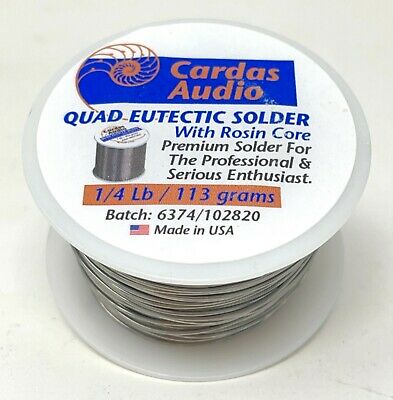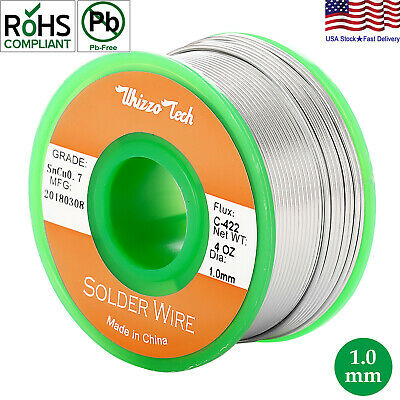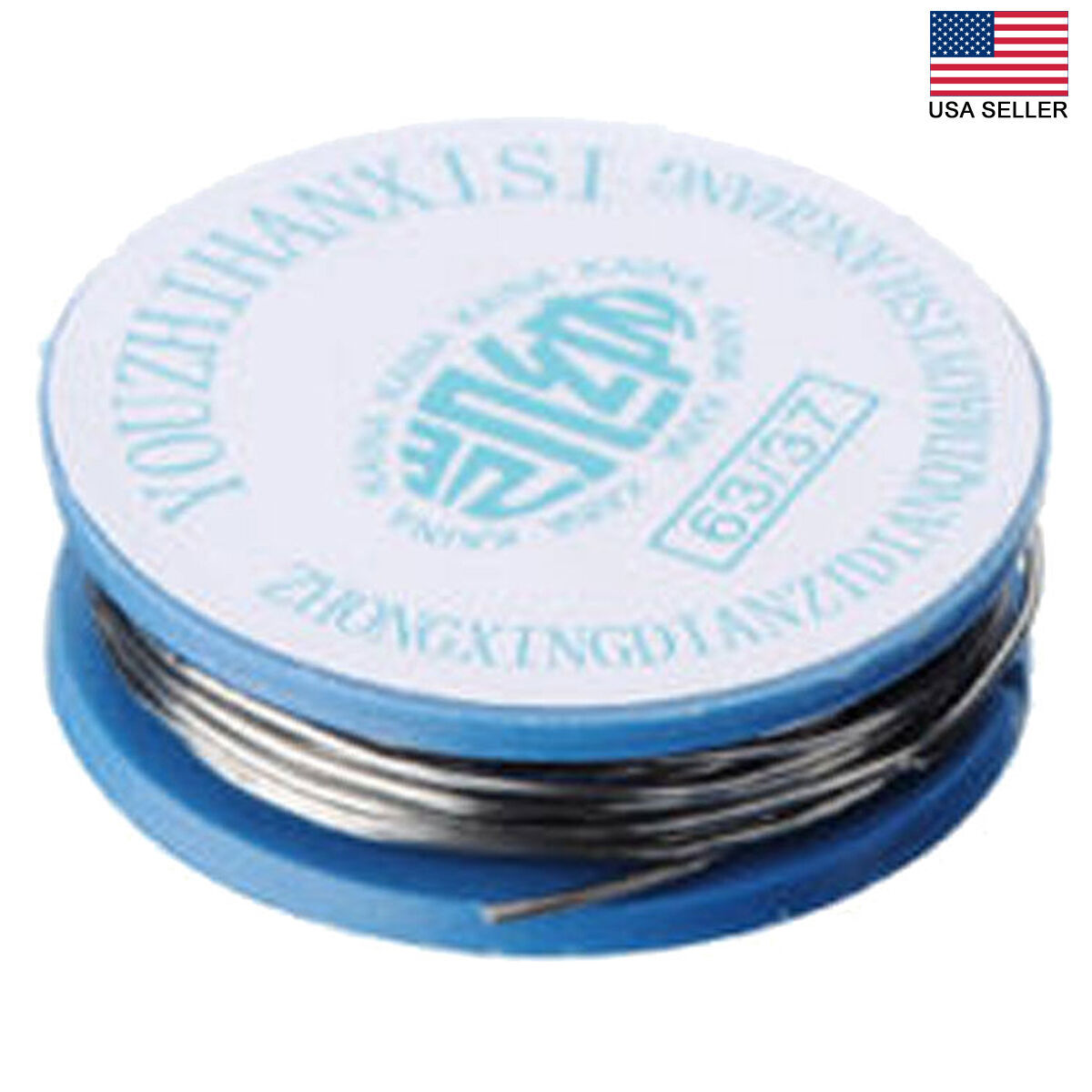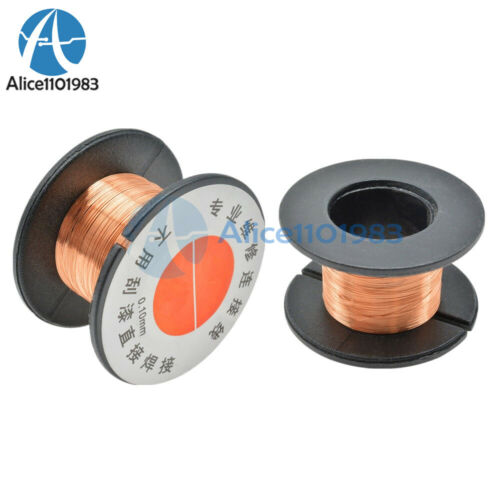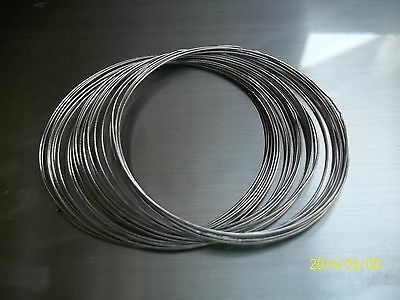-40%
CARDAS AUDIO QUAD EUTECTIC SILVER SOLDER Wire Roll W/Rosin Flux 110Gm 1/4 Lb
$ 13.13
- Description
- Size Guide
Description
We are an Authorized CARDAS Audio Dealer since 2004!Picture shows newest Cardas Audio Packaging for 2021
Cardas Quad Eutectic Roll Silver Solder - 1/4lb spooled roll 110 Gram
High quality Cardas solder made from the right combination of 4 metals. 1/4 pound roll.
Cardas solder is made with Ultra pure, tin / lead / silver / copper, Quad eutectic .032 solder, activated rosin core flux. Also available in 1 pound rolls.
Melting Temperature 338°F/170°C
Most solders, such as the popular 60/40, are a slurried mixture of tin and lead. In making the joint the tin/lead mixture melts, but as it solidifies it does so one metal at a time. It goes into a slurry state and one metal is liquid and the other is very small solid particles, sort of like wet cement. Next, the other metal solidifies and creates a million little connections. This type of connection is not particularly good and not permanent. When the phone company used this type of solder on their main frames, every joint had to be reheated once a year to insure reliability. Even then, the "cold joint" was a common occurrence. Bad and noisy joints were the main cause of failure in early printed circuit boards and electronic equipment until some time in the mid sixties or early seventies. Then they learned that eutectic joints were perfectly reliable and I do mean perfectly. By the mid seventies or early eighties most electronic equipment was being soldered with eutectic solder (63/37). The reliability of printed circuit boards went up about 1000% and solid state audio gear began to sound almost tolerable. Today, all printed circuit boards use 63/37 eutectic solder. Eutectic solder is a special mixture. The melting point of a eutectic solder is lower than any of its component parts, so there is no slurry state in these solders. They solidify as one piece and make a true solder joint, not a connection. Now, provided that the parts being soldered are made of the metal incorporated in the solder (tin plate in the example of printed circuit boards and component leads, with 63/37 tin/lead eutectic solder in the solder baths), you will have a perfect joint.
These quality joints are easy to see. Most solders are very shiny when molten and get a haze on their surface as they solidify. Eutectic joints are shiny all the way to the metal being soldered, if the metal being soldered is of the same parent group as any of the components of the solder. Many of the Cardas and other high-end connectors are plated silver with a rhodium flash. The only wires used in high end audio are copper and silver, so George Cardas developed a tin/lead/silver/copper eutectic or Quad eutectic solder. Cardas reports never having, or hearing of, a single failure in one of these joints. This solder is now used in the vast majority of all high end cables and equipment. Properly done, Quadeutectic joints provide the best sound with the lowest noise and contact resistance; all with absolute reliability.
Cardas supplies Quad eutectic solder in many sizes, with either activated rosin core or organic water base flux. Activated rosin flux is ideal for most applications where the components are not washed after soldering. The rosin is actually a protective coating. The organic water based flux must be washed from the component after it is soldered. Manufactures of boards sometimes use the organic flux to get a really clean look to their boards, however, they must be washed carefully after soldering to prevent corrosion. Cardas recommends the use of the rosin core solders for most applications.
Cardas Quad Eutectic Roll
Sn, Pb, Cu, Ag
364-384º F
